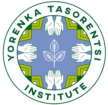Culture
The Yorenka Tasorentsi Institute is preserving indigenous culture.
The indigenous people account for 5% of the world’s population and protect nearly 80% of the world’s biodiversity. The World Resources Institute reports that there is a significantly lower rate of deforestation on the lands where they live, thus proving the existence of a strong correlation between high biological diversity and the preservation of indigenous lives and culture. Being the guardians of life on earth, it is in our interest to preserve native wisdom in order to ensure the future of our planet.
The Ashaninka heritage embraces ancestral wisdom and traditions, spirituality, native art, languages, chants and music, and are all used to foster their relationship with the forest. These practices are a reflection of what is seen and felt in the natural environment and is deeply connected to sacred elements of nature, representing a wider cosmology that determines what happens on Earth.
The elders and ancestors through native language, have a strong responsibility to pass on this traditional knowledge and way of life in order for their children and grand-children to integrate Ashaninka values and morals.
Yorenka Tasorentsi serves as a platform in which this cultural heritage and this rich and unique way of understanding life can be valued, respected and safeguarded. In turn, these values and principles, deeply rooted in a universal appreciation of life and the natural world, can be applied and practiced elsewhere in the world.


